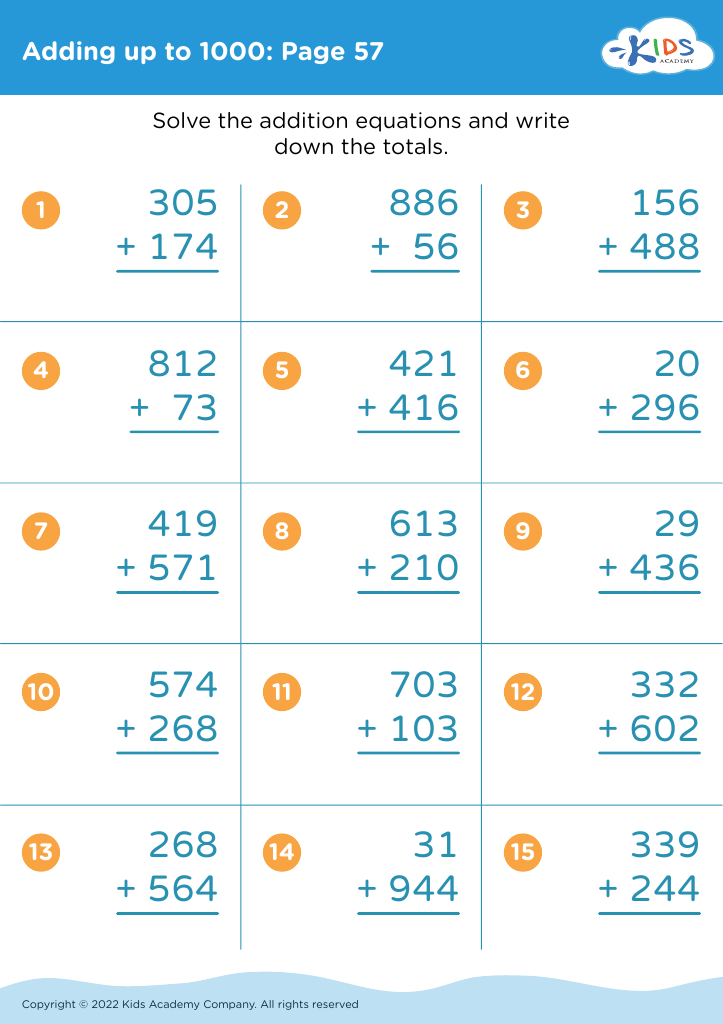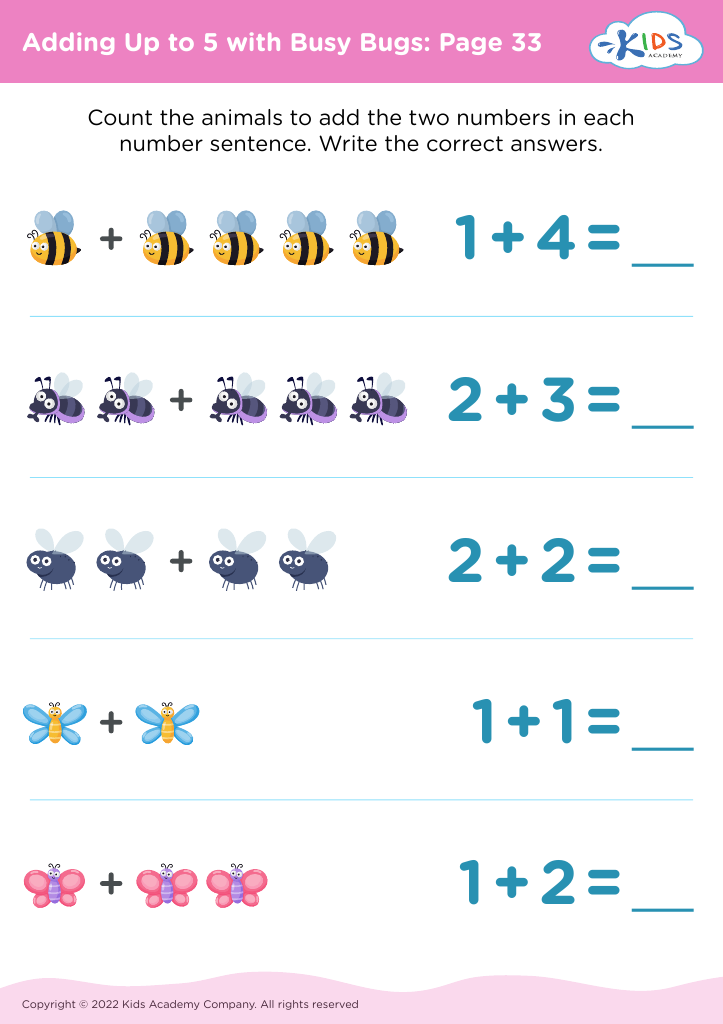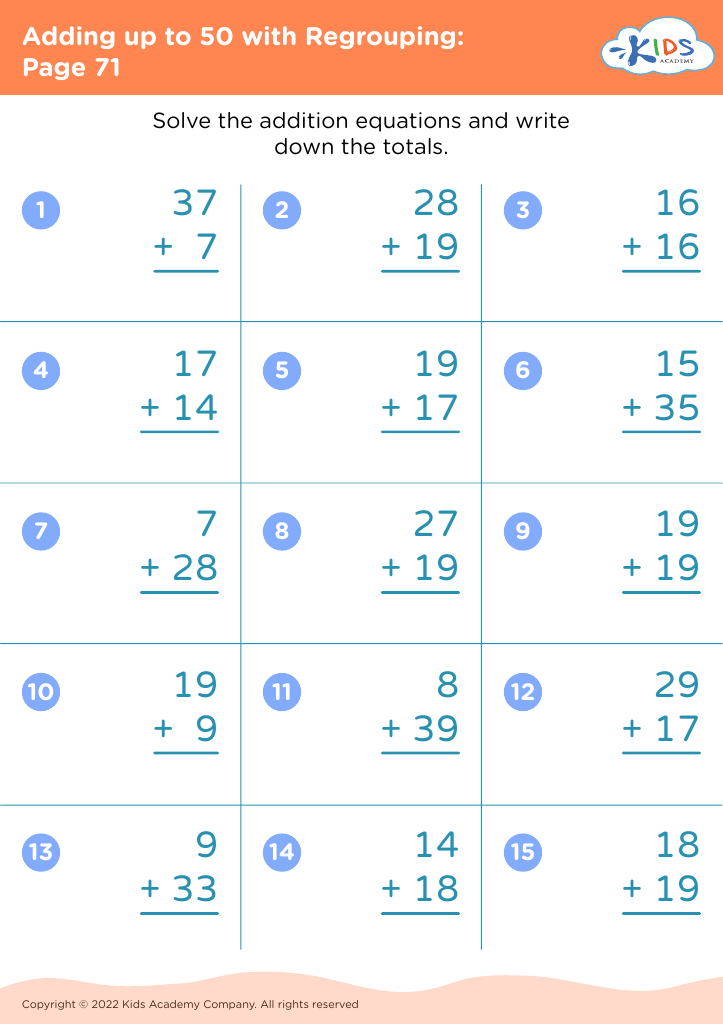Motor skills development Addition & Subtraction Worksheets for Ages 3-8
5 filtered results
-
From - To
Discover our engaging Motor Skills Development Addition & Subtraction Worksheets designed for children ages 3-8! These interactive worksheets not only introduce foundational math concepts but also enhance fine motor skills through fun activities. Children will enjoy tracing numbers, connecting dots, and completing various hands-on tasks that reinforce addition and subtraction principles. As they work through our colorful and child-friendly worksheets, kids develop their coordination and dexterity while building confidence in their math abilities. Ideal for both home and classroom use, our resources support young learners in achieving essential skills that lay the groundwork for their academic journey. Start exploring today!
Motor skills development and foundational math skills like addition and subtraction are critical areas of growth for children ages 3-8. Parents and teachers should prioritize these skills because they are interconnected aspects of a child's overall development.
Developing fine motor skills through activities like drawing, cutting, and building enhances children's ability to hold writing instruments and manipulate objects, which directly ties into their capability to engage with mathematical concepts. Children often use their hands when learning to count, sort, or manipulate objects to understand basic addition and subtraction.
Moreover, strong motor skills contribute to improved focus and attention, which are essential for academic success. As children learn to manipulate small items or write numbers, they build confidence in their abilities—their motivation grows, leading to a deeper engagement with learning.
Additionally, learning addition and subtraction at an early age sets a strong mathematical foundation, fostering problem-solving skills essential for future academic pursuits. When kids grasp these early math concepts, they not only prepare for more complex mathematics but also develop critical reasoning and analytical skills that are invaluable for lifelong learning. Thus, nurturing motor skills alongside arithmetic is vital for comprehensive childhood growth and learning readiness.
























